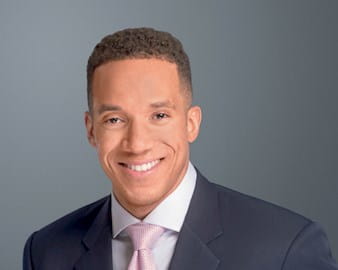
Alison Ranney, MBA ’96, JD ’96
Managing Partner, Koya Leadership Partners; and Partner-in-Charge, Chicago, The Diversified Search Group
The Challenge: There is an increased interest in hiring women and people of color into CEO and other leadership roles at mission-driven, for-profit businesses as well as nonprofit organizations. However, many boards of directors and CEOs note they struggle to find exceptional candidates to fill top-level positions.
The Solution: Alison Ranney, MBA ’96, JD ’96, notes there is “an art and a science” when it comes to executive search for CEOs and other senior roles. Initially an attorney with Skadden Arps, Ranney was “recruited into recruiting” and spent close to a decade at Russell Reynolds Associates before moving her practice to Koya Leadership Partners to focus exclusively on mission-driven search at the highest levels.
Koya is an executive search and strategic advising firm whose founding tenets include a commitment to diversity, equity, and inclusion. When Ranney joined the company in 2014, she was the first partner to join the company from a global firm. She was attracted by Koya’s commitment to exceptional client service and its focus on placing women and leaders of color to CEO and other senior roles. Due to the quality of its work and its fundamental values, Koya has emerged as the leader in mission-driven search, with almost 100 employees leading searches globally.
As organizations and businesses come to Koya, clients often start with a focus on qualifications for CEOs and other senior leaders, such as years of experience or specific degrees. Ranney reframes the discussion, asking clients what their aspirations are, what they want the next leader to achieve, and what qualities, skills, and characteristics the best candidate should possess as a result. If the position has essential, specific requirements, she incorporates those without letting them drive the selection.
“We work to ‘open the aperture’ and allow our clients, and our team, to think more creatively,” she said. While the “science” of a search includes conducting research and mapping potential candidates, the “art” includes intentionally gathering recommendations for people of color and women who have the qualities, skills and characteristics the client is seeking.
Ranney and her colleagues have found that when clients interview a diverse group of strong candidates, they are more likely to hire women and leaders of color. Firm-wide in 2019, 68 percent of the people Koya placed into CEO and other senior leadership roles were women. Of Koya’s placements, 44 percent self-identified as people of color.
The Takeaway: When you are recruiting a CEO or senior leaders to your team, you can intentionally expand your pool of strong candidates by focusing on qualities, skills, and characteristics rather than qualifications. This leads to a more diverse group of qualified candidates, stronger recruitments, and stronger performing businesses.

Gem McCreary, ’13
Founder and CEO, TalentoTotal, Bogotá, Colombia
The Challenge: How do you present solutions to a problem when an organization doesn’t realize the problem exists? When Gem McCreary, ’13, began working in banking in Colombia in 2016, he reconnected with another Booth classmate, Douglas Nagy, ’13, who worked in consulting. They both noticed little diversity in their respective fields, particularly with respect to Afro-descendant and indigenous employees. An Afro-American business leader himself, he noted similar diversity problems while previously working in Brazil.
The Solution: McCreary and Nagy discovered these communities had limited access to higher education, especially overseas, so there were few job opportunities for them in fields like their own. Meanwhile, local leadership in multinational companies did not prioritize finding racially or ethnically diverse candidates. McCreary realized that to change this situation, he needed a two-pronged approach: increasing enrollment of Afro-descendant and indigenous students in US graduate school programs and also quantitatively demonstrating to companies the importance of diversity.
Since multinational firms rely on MBA graduates for new leadership talent, enrolling Afro-descendant and indigenous students into top US graduate schools would give firms a pipeline of potential employees to improve diversity. Recalling his own background, he knew if these students were to apply and enroll in top US graduate schools, they would need significant support networks, like the kind he relied on at Booth.
He began by reaching out to companies, using data on race and ethnicity gathered by organizations such as the Inter-American Development Bank, the United Nations, and other groups to show statistically the gaps in diversity and inclusion initiatives at multinational companies. When pointing out the problem, he also offered a solution: he would find the talent in underrepresented communities. “You can’t fix anything if you can’t measure it, address it, or see it,” he said. “I used that data to really drive home the point that I was trying to make.”
In 2017 McCreary and Nagy founded TalentoTotal to increase the number of Afro-descendant and indigenous students enrolling in US MBA and law school programs who would go on to work in job placements in Latin America. First, TalentoTotal selects up to 24 candidates each from these underrepresented communities for its MBA and law school programs. Then, these students receive 12 months of guidance and strategy to help them understand the application process and apply to schools in the United States and Europe. When enrolled, each candidate is paired with a local coach for further support.
McCreary, who serves as TalentoTotal’s CEO, said the organization’s first candidate is currently enrolled in an MBA program and has already been hired by the Brazilian office of a large consulting firm. That individual is one of the first black analysts hired by the firm in the 30 years it has operated in Brazil, a country with a majority Afro-descent population.
The Takeaway: Talented employees exist in every culture. Employers should deeply understand the data on the potential gaps at their own companies to guide more inclusive hiring efforts.


